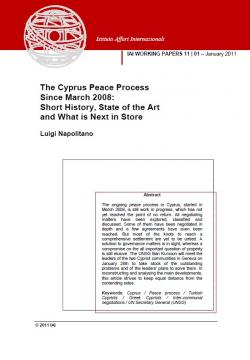Energy and Human Rights: Two Irreconcilable Foreign Policy Goals? The Case of the Trans-Caspian Pipeline in EU-Turkmen Relations
The EU has been divided on how to frame its relations with resource-rich dictatorships. While energy security and the promotion of democracy/human rights are both foreign policy priorities, Brussels has frequently been criticized for trading the latter for its energy interests. In the case of Turkmenistan, negotiations on the Trans-Caspian pipeline have gone ahead without the inclusion of normative conditions. There are however dissenting voices in the EU which advocate the application of human rights based conditionality prior to the deepening of energy relations with Ashgabat. This paper argues that the EU lacks the necessary leverage for such an approach and should instead focus on using the proposed energy deal as a means of ushering in positive change through the inclusion of normative provisions into its sectoral policies in the country.
Paper presented at the seminar on "Interests vs Values: the EU's policy towards Central Asia", Rome, 26 March 2012.
-
Details
Roma, Istituto Affari Internazionali, 2012, 16 p. -
Issue
1207 -
ISBN/ISSN/DOI:
978-88-98042-44-9
Introduction
1. The Central Asian Trade-off
2. Why Turkmenistan?
3. The Prospects of a Trans-Caspian Pipeline
4. The Potential Ramifications for EU-Turkmen Relations
4.1. European Approaches: Value-based Conditionality and Interest-driven Engagement
4.2. The Limits of a Value-based Policy in Turkmenistan
4.3. The Potential Fruits of An Interest-driven Engagement Policy with Turkmenistan
Conclusion
References



